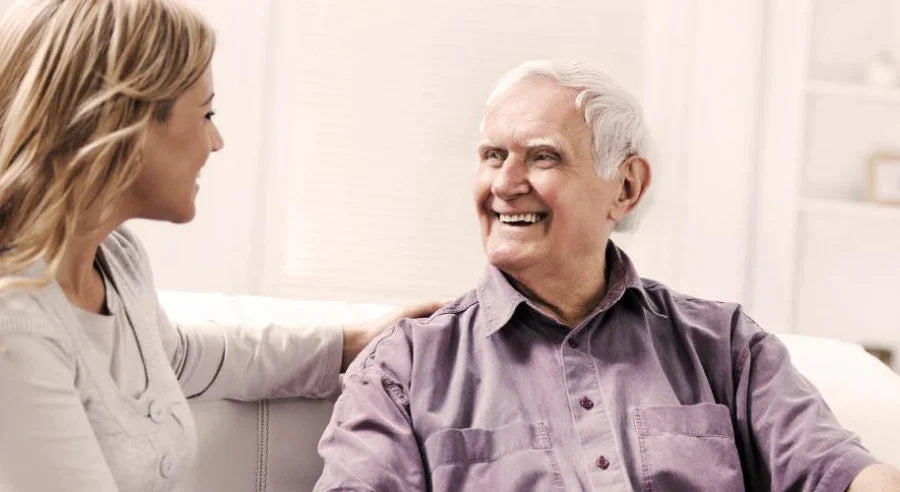LIVING WITH INCONTINENCE
Incontinence exercise
Read moreMENS & UNISEX SPEND AND SAVE EVENT! PLUS ENJOY FREE SHIPPING ON ALL ORDERS

The prostate is a walnut-sized gland found only in males. It sits below the bladder and wraps around the urethra.
Its purpose is to produce the milky fluid that nourishes sperm and helps make up semen.
The reason why this happens is unknown, but it seems to be a fairly inevitable part of ageing. Over time, the gland slowly becomes bigger, increasing to the size of a lemon. According to the Harvard Medical School, half of all 60-year-old men will have an enlarged prostate, and by the time they’re 85, that number has risen to 90%.
The medical term for this is Benign (non-cancerous) Prostatic Hyperplasia or BPH.
Of course, in some cases, the enlargement is caused by cancer, so if you do have symptoms, make sure you make an appointment with your doctor and have it investigated.
As you can see in the diagram, the gradual increase in the size of the gland squeezes and constricts the urethra, the tube that drains urine from the bladder to outside the body. The enlargement can also put additional pressure on the bladder
It’s important to know that for many men, an enlarged prostate has no impact on their health or continence. But for those who do experience issues, the most common are:
It’s well documented that men can be reluctant to see a doctor, but there are two strong arguments to have this condition investigated:
Just keep in mind that doctors have seen and heard it all before, so you should feel able to share everything that’s going on in the same way you’d talk to your mechanic about how your car is running.
This article, Questions for the Doctor might be useful in preparing for your appointment.
Your doctor will advise you on the best course of action for your circumstances, which could include:
Damage from prostate surgery can have a negative impact on continence, usually through nerve injury. An anaesthetic can also cause a condition called Post-Operative Urinary Retention (POUR), which is the inability to pass urine. You can read more about that here. Both of these are typically temporary and resolve themselves over time.
If you’ve had prostate cancer, in addition to surgery, radiotherapy can also contribute to incontinence by irritating the bladder and causing it to contract more than usual. For more information, read this article titled Prostate Cancer and Male Urinary Incontinence. Once you’ve fully recovered from treatment, your urinary function should return to normal, but if issues persist, discuss it with your doctor.
Using an absorbent, disposable product is also a good solution, long or short term. These products are soft, discreet and comfortable as well as being specifically designed to quickly absorb and lock-away urine to keep you dry and odour-free.
Using such products for the first time can be very disconcerting for men, but they quickly discover how effective they are and soon don’t even notice they’re wearing them. Read more about using absorbent products, including when to change and the correct way to dispose of used ones here
The TENA for Men range of products includes anatomically designed Shields and Guards that fit snugly into the front of briefs and offer ideal protection for dribbles. The men’s range also includes Men’s Pants. However, to find the best product for your needs, check out the TENA Product Finder Tool,where you can also order free samples.
Sources:
Asaleo Care makes no warranties or representations regarding the completeness or accuracy of the information. This information should be used only as a guide and should not be relied upon as a substitute for professional, medical or other health professional advice.